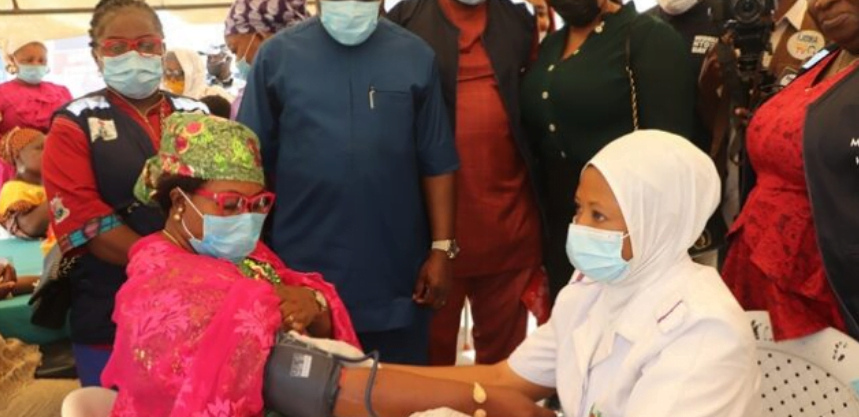Women living with HIV/AIDS 6 times more at risk of cervical cancer

Women with HIV and AIDS are six times more likely to develop cervical cancer, according to Society for Family Health (SFH), an NGO.
In an interview with the News Agency of Nigeria (NAN) on Sunday in Abuja, Dr. David Oyedeji, Deputy Chief of Party, Key Population Community HIV Care Services for Action Response (KP-CARE 2), stated as much.
He asserts that these women face a wide range of obstacles that prevent them from receiving cervical cancer screening services, including socioeconomic, cultural, psychological, and educational obstacles.
In order to identify precancerous lesions in the cervix and aid in early detection of lesions, he defined cervical cancer screening as an intervention.
The methods include Human Papilloma Virus (HPV) screening, PAP smear and Visual Inspection with Acetic acid (VIA).
“Of the three, the VIA is most accessible and cost-effective hence its use in resource-limited settings.
“In the VIA method, on inspection of the cervix stained with acetic acid, lesions are classified as VIA +ve or VIA -ve based on the colour seen. VIA +ve lesions are treated with cryotherapy or thermal ablation.”
Oyedeji said that cervical cancer is the fourth most common cancer in the world with more than 600,000 new cases and 340,000 deaths recorded in 2020.
He added that it is the most prevalent gynaecological cancer in Nigeria with more than 60 million women estimated to be at risk.
“Nigeria ranks among the first five countries that represent over half of the global deaths from cervical cancer despite this cancer being largely preventable through screening and vaccination.
“SFH, through the USAID-funded KP CARE 2 project provides cervical cancer screening services for women among key population groups living with HIV and AIDS in Sokoto, Kebbi, Zamfara, Borno, Bauchi, Kebbi and Adamawa,’’ he said.
According to him, the components of the service delivery include community-based education and sensitisation on cervical cancer and facility and community-level screening services.
Other components are immediate treatment services for pre-cancerous lesions identified using cryotherapy or thermablation and partnerships with tertiary health facilities for referral of clients with suspected cancerous lesions for further evaluation and treatment.
Oyedeji said that since the beginning of the KP-CARE 2 project, about 2,000 women had been screened and 30 VIA positive lesions identified and treated.
Fifteen pre-cancer lesions were also referred for further evaluation and treatment.
He said that studies in Nigeria had linked low uptake of cervical cancer screening services to lack of adequate information of the populace about cervical cancer.
“SFH is closing this knowledge gap by implementing peer-led information dissemination and education strategies in communities serviced by its projects.
“SFH will continue to expand its reach, bringing cervical cancer screening services into communities where access is limited or unavailable thus, closing the gap in access to cervical cancer screening and treatment services,’’ he said.
NAN reports that World Cancer Day is commemorated on Feb. 4 and the 2023 theme is: “Close The Care Gap”.
The three-year theme which began in 2022 would run up to 2024.
The aim is to call on all stakeholders to collectively and individually commit to strengthening actions aimed to improve access to quality care, including screening, early detection, treatment and palliative care. (NAN)






